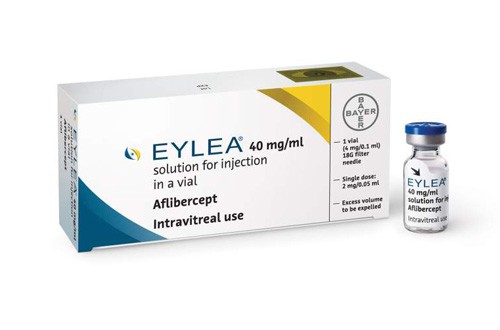
Germany’s cost-effectiveness watchdog has concluded that Bayer’s Eylea provides no additional benefit over Novartis’ rival drug Lucentis in patients with a diabetes-related eye disorder.
Eylea (aflibercept) has been sold in Germany for diabetic macular oedema (DMO) since August, but the German Institute for Quality and Efficiency in Health Care (IQWiG) now says it provides no additional benefit over Lucentis (ranibizumab).
The ruling could mean Bayer may struggle to get favourable reimbursement pricing for Eylea – which it sees as one of its main growth products – in Europe’s biggest pharma market.
The drug is currently leading the charge at Bayer in terms of sales growth, with turnover doubling in the third quarter of the year to reach €189m. It is one of a number of new products that Bayer has predicted could reach €7.5bn in peak sales, contributing an estimated €1.5bn of that total.
The agency’s findings will be taken into account by the Federal Joint Committee (G-BA), which is due to deliver a final verdict on Eylea’s cost-effectiveness next March. The company has said it will respond to IQWiG’s assessment in due course.
Since 2011, drugs launched in Germany have also been subject to a new AMNOG pricing structure, which determines how much extra benefit a drug can give next to its nearest comparator. If it is deemed superior, then the pharma company can negotiate a price with the German government. If not, then a baseline price is set.
IQWiG has already reviewed Eylea for two other indications – macular oedema following central retinal vein occlusion (CRVO) and wet age-related macular degeneration (AMD) – and on both prior occasions concluded there was no evidence of added benefit compared to Novartis’ drug.
The G-BA had earlier decided that Eylea would be compared to Lucentis in cases of DMO, which affected the fovea centralis – a pit in the back of the eye that is the site of the acute vision – while for other types it was compared to standard laser therapy.
“The data showed no relevant differences between the treatment groups for patients in whom the fovea centralis is also affected,” said IQWiG in a statement, adding that Bayer did not submit any data for other patients.
Bayer has also filed an application to extend the indications of its ophthalmic drug Eylea in Europe to include use in patients with branch retinal vein occlusion (BRVO), a leading cause of visual impairment in the elderly.




